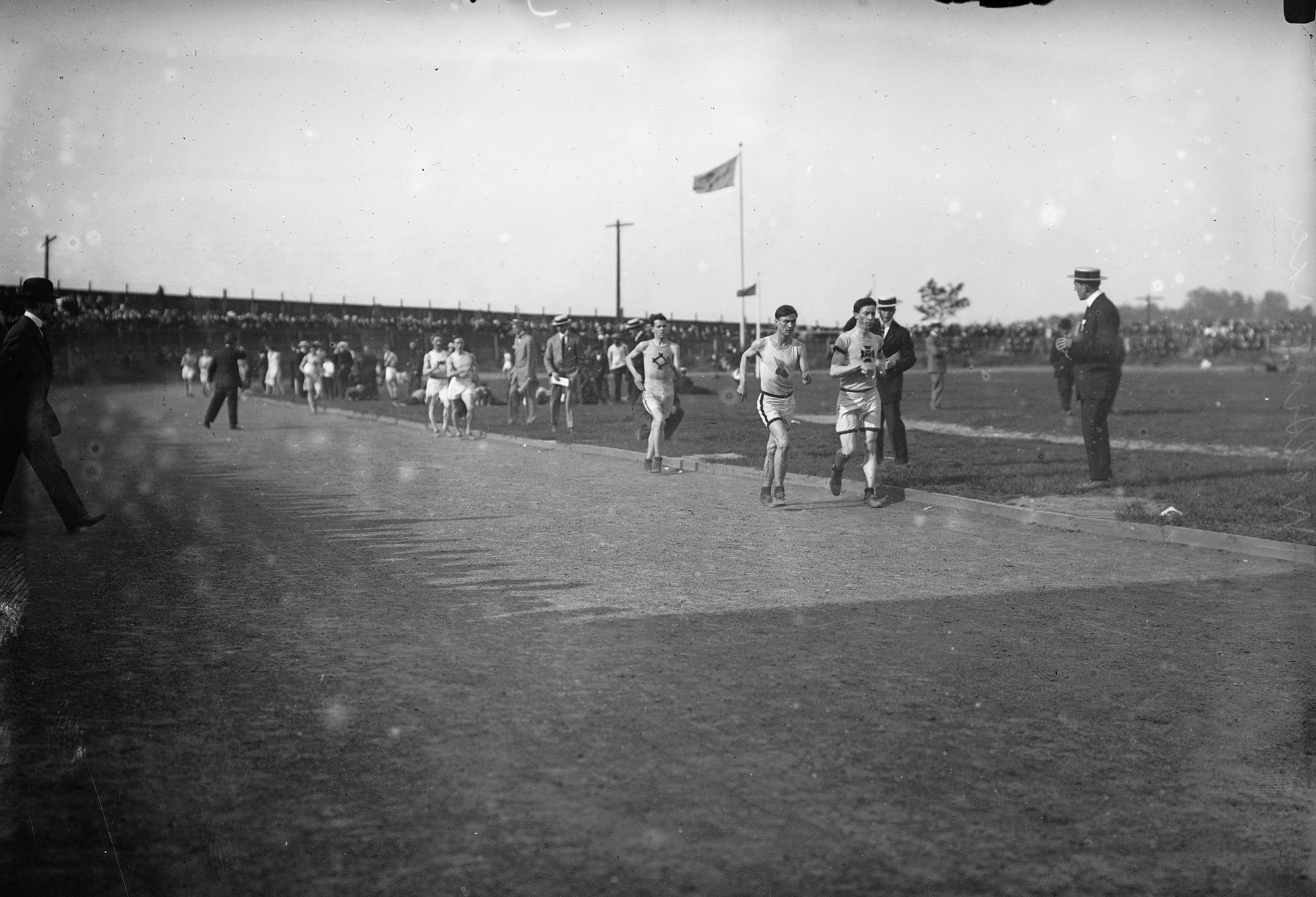
Walking match, c. 1910. Photograph by Bain News Service. Library of Congress, Prints and Photographs Division.
• Found: a four-thousand-year-old board game in Azerbaijan. (Live Science)
• Looking for lessons for Brexit in abandoned airfields: “Surely, for the pilots returning to RAF St Davids, the landscape appeared how Virginia Woolf imagined it in her essay on flying over London: “earth merely, merely the world.” I’ve started to long for these strange places, sites of anchorage and recalibration, offering me the kind of calm that comes from looking at the night sky or swimming in the ocean.” (Places Journal)
• How the use of totally in Clueless stays true to Jane Austen’s use of language in Emma: “Austen, known to be economical with language, uses ‘very’ so much more in Emma than in any other work that it can’t be accidental, and yet, cleverly, it’s also not immediately noticeable because the word is so common. Just by using this simple word in the right places, Jane Austen is able to give the dialect of Highbury a unique voice.” (JSTOR Daily)
• On political walking and Rousseau: “Writerly wandering is thought to have set off on a left-wing tradition around 1800. It is a common (but not universal) view that Wordsworth was a young radical before turning Tory only in his old age, and that his writing on walking was anti-capitalist. (What is beyond debate is that Wordsworth definitely walked, a lot. De Quincey claimed to have calculated that he covered over 175,000 miles.)” (Public Domain Review)
• Erasmus Darwin and plant sex. (Smithsonian.com)
• When World War I changed how doctors thought of bodies and medicine. (Aeon)
• Heading to the library archives to read homoerotic Star Wars fanzines for research. (Nursing Clio)
• Things that have aged well: “In twelfth-century Canterbury, a clerk sorting through a collection of Anglo-Saxon charters and letters wrote the words epistola inutilis (‘useless letter’) on the back of an Anglo-Saxon letter sent in the year 704 or 705.” (British Library)
• This week in obituaries: the inventor of the first word processor, a voting rights advocate from North Carolina, the founder of PizzaExpress, and an overdue obituary for a memoirist who happened to be Mary Todd Lincoln’s dressmaker.